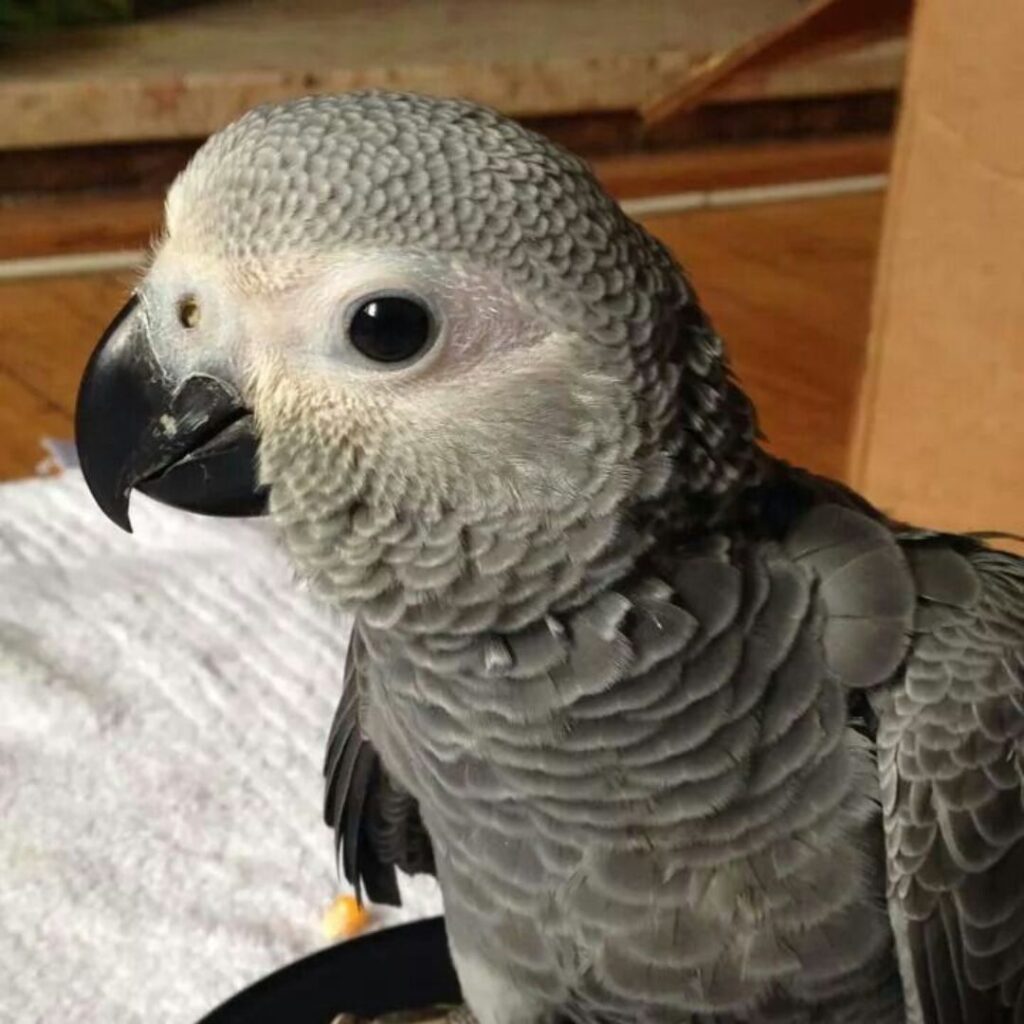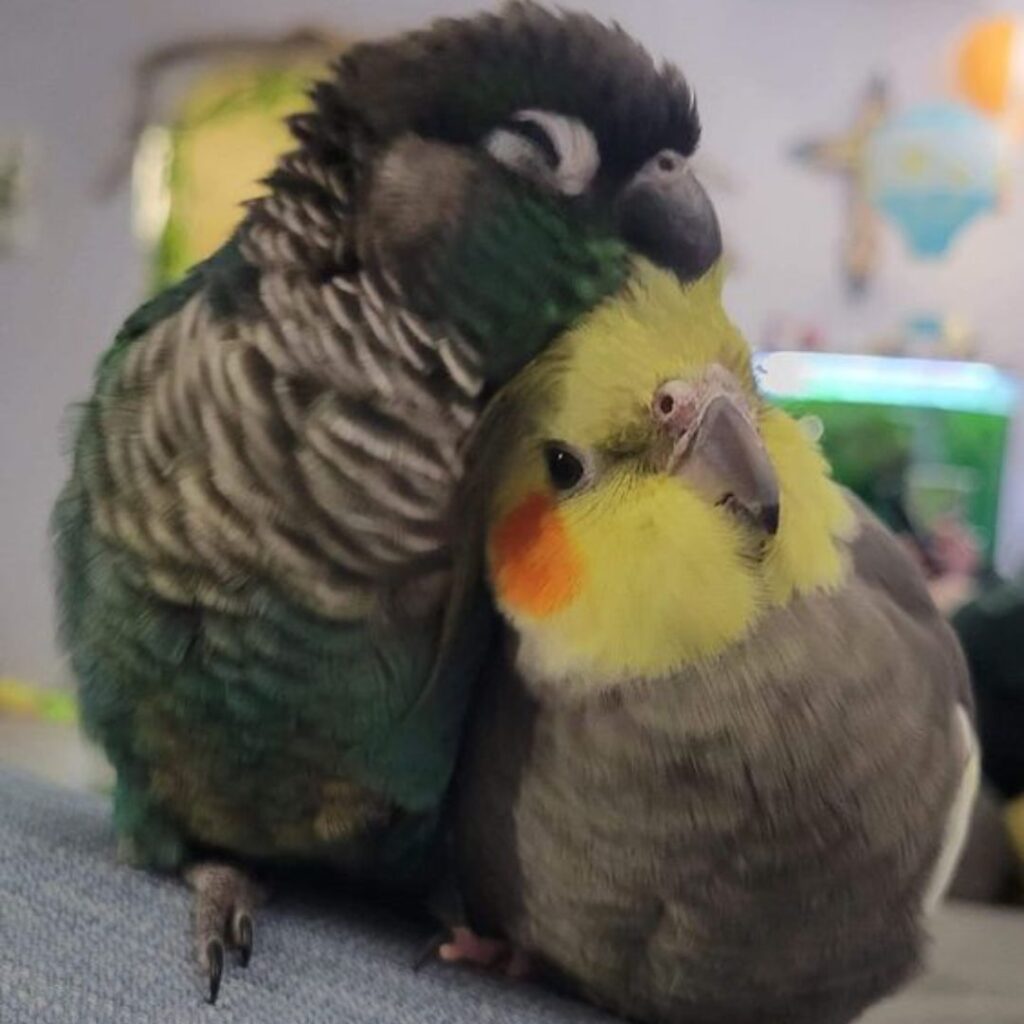
African Grey parrots are one of the most intelligent and talkative bird species kept as pets. They are known for their ability to mimic human speech along with their striking plumage. The beautiful grey feathers topped with a splash of red or red-and-green are a joy to observe. However, owners often get worried and one question arises in their mind, “Why is my African parrot losing fathers?”. Fear not, feather loss is normal at times but it’s important to understand the potential causes for optimal care.
Molting – Why Is My African Grey Parrot Losing Feathers
Molting is a completely natural phenomenon that all parrots, including African Grey parrots, go through to replace old feathers with new ones. It occurs usually twice a year, during and after the breeding season. During this time, you will notice your bird’s old feathers gradually loosening and dropping out in a patchy pattern. Soon pin feathers, which are emerging new feathers covered in protective sheaths, will pop up. Some other signs of normal molting include increased flaky feathers on cage surfaces, inside the food bowl, and your bird spending more time preening.
A complete molting process over a few weeks is healthy. However, it’s important to provide a nutritious diet rich in proteins, vitamins, and minerals through this period to support new feather growth. The feathers will renew in their full glory within 4-6 weeks if molting appears gradual.
Also Read: Are African Grey Parrots a Good Pet

Feather Destructive Behavior (Feather Plucking)
On the other hand, excessive feather loss, patches of bare skin, or feathers missing from specific areas can indicate the behavior of feather picking or plucking. This neurological condition often stems from stress, boredom, frustration or underlying nutritional deficiencies. Feather plucking is distinct from molting in that it results in bald spots rather than an even patchy shedding of feathers. Make sure to closely monitor your pet for any signs of skin wounds or damage from repetitive plucking. Addressing the root cause and providing more stimulation and a comfortable environment can help reduce this abnormal behavior over time.
How To Stop African Grey From Plucking?
To stop an African Grey from plucking, ensure a balanced diet, provide mental stimulation, limit stressors, offer toys for entertainment, maintain a consistent routine, and consult an avian veterinarian for guidance.

Other Causes of Feather Loss Other than Molting
While the above-mentioned are common reasons for missing feathers, there can be some other underlying issues too. These include:
- Bacterial/fungal infections on the skin or in feathers that cause itching and loss. Salmonella is a concern.
- External parasites like feather mites, lice, or ticks that can lead to plucking due to itching.
- Hormonal imbalances or stress around breeding season.
- Genetic skin conditions causing dry, flaky skin and feather loss.
- Previous trauma to the body like broken bones leading to moult problems.
- Detailed physical examination, sample tests, and veterinary treatment are required to resolve such cases.
When to Consult an Avian Veterinarian
While mild, patchy molting should not be a cause of concern, it is advisable to schedule an appointment with an avian/exotic vet if:

- Feather loss appears excessive or uneven over large areas
- Raw skin or wounds are visible due to plucking
- Other abnormal signs like lethargy, loss of appetite are observed
- Molting seems to have stalled or feather growth appears abnormal
- Medications/procedures are needed to treat infections, parasites etc.
- Timely vet care can diagnose issues and start appropriate treatment for speedy recovery of your feathered friend.
Also Read: How To Bath Your African Grey Parrot
Conclusion
In conclusion, some feather loss during molting season is perfectly normal for African Grey parrots. But large patches missing or skin damage from repetitive plucking requires investigation. Keeping stress levels low through proper care, diet, hygiene and stimulation is key to supporting healthy regrowth. An avian vet can guide further if any concerns remain. With the right approach, your parrot’s beautiful feathers will renew like they’re meant to.
Pingback: Are African Grey Parrots a Good Pet? | Pet Care Sensei
Pingback: Pros & Cons of Owning an African Grey Parrot
Pingback: Top 5 Smartest Birds in the World | Bird Care Sensei